Ecosystems: Interactions, Energy, and Dynamics
-
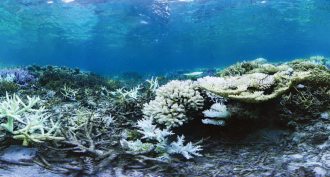 Oceans
OceansCreative ways to help coral reefs recover
Coral reefs are under siege from threats ranging from climate change to explosives. But scientists are developing ways to rebuild reefs before they disappear.
-
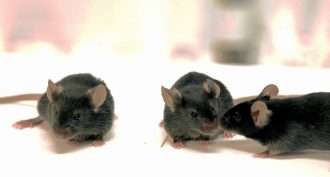 Brain
BrainPain is contagious — at least in mice
Pain can move from one mouse to another. The trigger may be smell.
-
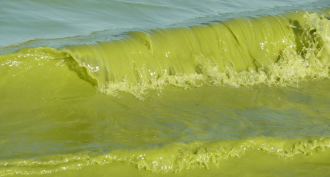 Tech
TechWater sensor quickly detects algal poison
A new sensor can detect poisons from harmful algae within minutes so that drinking-water plants can start timely treatments.
-
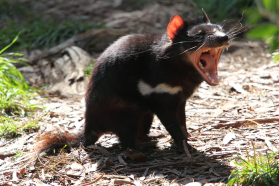 Animals
AnimalsTasmanian devils begin to resist infectious cancer
A deadly contagious cancer is spreading among Tasmanian devils. But the animals are evolving resistance, a new study finds.
-
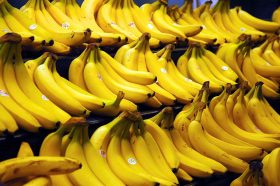 Agriculture
AgricultureBananas under attack: Understanding their foes
Fungal blights threaten the world’s most popular fruit. But genetic studies hint at new ways to combat some of these diseases.
-
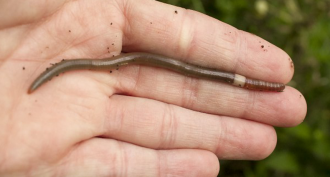 Ecosystems
EcosystemsEarthworms: Can these gardeners’ friends actually become foes?
Asian jumping worms can strip leaf litter from floor of U.S. forests, new data show. Many native plants need that leaf litter for their seeds to germinate.
-
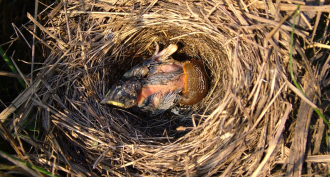 Animals
AnimalsGiant slugs snack on baby birds
When they accidentally run into bird nests sitting on the ground, some slugs help themselves to a free, easy meal of bird chicks.
-
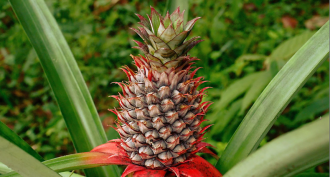 Plants
PlantsScientists Say: Bromeliad
Bromeliads are plants with long spiky leaves. They are common houseplants, and we even see one in the grocery store — the pineapple.
-
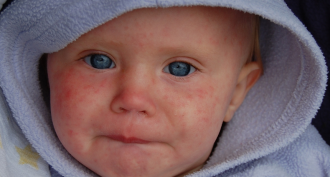 Health & Medicine
Health & MedicineMeasles in the Americas: Going, going — gone!
The Americas have at last shed a major childhood scourge: measles. The viral infection used to kill hundreds of children each year. Now the hemisphere only sees cases spread by travelers.
By Meghan Rosen -
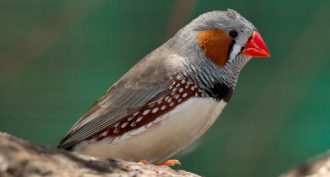 Health & Medicine
Health & MedicineZebra finches can ‘drink’ water from their own fat
When water is scarce, thirsty zebra finches can produce their own water. They do it by breaking down their body fat.
By Susan Milius -
 Animals
AnimalsMeet scientists who take on the study of life
What does a scientist look like? Meet these amazing women in biology.
-
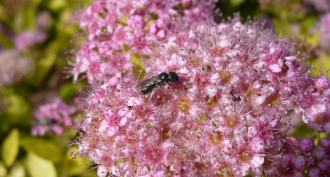 Animals
AnimalsBee underfeeds eldest daughter, creating ‘nursemaid’
By giving a brood’s firstborn female smaller portions and a low-protein diet, a mother bee can turn the offspring into a nursemaid for her younger siblings.